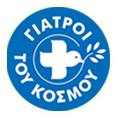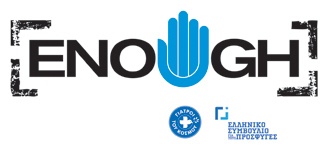Based upon their long experience on the areas of migration and protection of vulnerable population groups, Médecins du Monde and the Greek Council for Refugees state the following:
The minor, in question, arrived and has been living in Greece, all by himself, since early March of 2013. He shared a small apartment in Athens, with 13 more people. The minor was torn away from his mother at the check-in of El. Venizelos airport by facilitators, who according to their preferred tactic, cared just for the mother to board the aircraft, while the minor didn’t manage to get on the plane. The minor was detained for few minutes at the airport police department and he was then released without any action to be taken on the part of the authorities for his protection. Then, he returned, on his own, to the apartment he lived in Athens.
The 14-year-old boy was entirely unaware of his rights and he lived in an apartment unsuitable for living. In addition he was struggling to provide food for himself and did not know where to turn for help. Even after he was attacked and admitted to the Emergency Department of a public hospital, where he had his wounds stitched, he faced difficulties getting the medication that was prescribed to him, as public hospitals do not cover medical expenses for uninsured patients, not even in the case the patient is an injured unaccompanied minor.
In addition, notwithstanding the fact that the minor had been granted protection, and while all legal procedures for his protection had been followed by MdM and GCR, the minor was at risk of being arrested and detained by the police throughout the testimony process and only after repeated interventions were made, did he evade the risk of being arrested.
After this case came in the limelight, the Swiss Embassy stepped in and by means of bypassing the impediments ensuing from the “Dublin II” regulation, helped expedite the family reunification process and made it possible for the 14-year-old boy to reunite with his family in less than 20 days time. By-passing the impotence and arbitrariness of the Greek state on matters of the protection of unaccompanied minors, this intervention has contributed towards providing protection to this child.
In addition to the all above mentioned and in direct relation to the case of the 14-year-old boy, we ought to point out the following:
• Detention of unaccompanied minors, stipulated by the European Convention for the Human Rights only as a measure of last resort, in Greece tends to become the main practice. .
• This case is just one of many other cases of unaccompanied minors in Greece, who do not get initial reception services. There are hundreds of unaccompanied minors who still stand out of the protection framework.
• There are increasingly more cases of minors who are left behind in Greece, while their parents are smuggled into other E.U countries by facilitators.
• Many unaccompanied children are held in custody for months and only few of them go through the “long” family reunification process.
•The existing reception and care practices for unaccompanied minors are inadequate.
• For unaccompanied children, access to health care and medication, as well as the Right to food, education, playing, entertainment and asylum, are neither respected nor safeguarded, even though they are defined by legislation.
• The child has now reunited with his family and lives with them in safety, and this is basically owed to the fact that the family reunification mechanisms have been bypassed after the racist attack incident got a lot of publicity.
• This case proves that effective implementation of the existing procedures can help protect many unaccompanied minors who currently live in Greece. However, many unaccompanied minors are still not under any care framework, thus they are deprived of access to the asylum process and the regulations of “Dublin II”
Thankfully, this attack did not have any tragic physical consequences on the 14-year-old boy, however, he could have avoid going through this traumatic experience, as well as the fear and the feeling of abandonment, if necessary action was taken, not after the violence attack but right after he was found in Greece, all alone.
In today’s Greece and Europe, where principles of humanism, solidarity and protection of human rights, and the rights of children in particular are deemed to be respected, it is utterly unacceptable that only after children have fallen victims of racist attacks, is any action taken for their protection.
Exceptionally for once, in this particular case, a child was rescued, thanks to the immediate intervention of Organizations. We only wish that the next violent attack will not prove fatal for another child.
We recommend that Dublin II Regulation should be amended, with particular attention drawn to unaccompanied minors, and that every, currently subordinate, procedure for the protection of minors and the reunification with their families should be implemented by the Greek Authorities.

